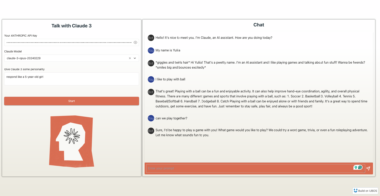Overview of BrowserCat MCP Server
In the rapidly evolving digital landscape, the need for efficient browser automation has become paramount. The BrowserCat MCP Server is a cutting-edge solution designed to meet this demand by providing seamless browser automation capabilities through a cloud-based infrastructure. This service is a game-changer for businesses and developers who seek to leverage the full potential of browser interactions without the hassle of local installations.
What is BrowserCat MCP Server?
The BrowserCat MCP Server is a Model Context Protocol (MCP) server that offers robust browser automation capabilities using the BrowserCat’s cloud browser service. It acts as a bridge, allowing Language Learning Models (LLMs) to interact with web pages, capture screenshots, and execute JavaScript in a real browser environment. This eliminates the need for local browser installations, thereby simplifying the process of browser automation.
Key Features
Cloud-Based Browser Automation: The BrowserCat MCP Server operates entirely in the cloud, ensuring that users do not need to install any browsers locally. This feature significantly reduces the overhead associated with browser automation.
Console Log Monitoring: It provides access to browser console outputs in text format, allowing users to monitor all console messages from the browser effectively.
Screenshot Capabilities: Users can capture screenshots of entire pages or specific elements. This feature is essential for documentation and debugging purposes.
JavaScript Execution: The server allows the execution of JavaScript directly in the browser console, providing a powerful tool for developers to test and implement scripts.
Basic Web Interaction: With tools for navigation, clicking, form filling, and hovering, the BrowserCat MCP Server facilitates comprehensive web interactions.
Use Cases
Web Testing and QA: The BrowserCat MCP Server is an invaluable tool for quality assurance teams. It allows for automated testing of web applications, ensuring that they function correctly across different browsers and devices.
Data Scraping and Collection: Businesses can utilize the server for data collection from web pages, enabling them to gather insights and make data-driven decisions.
AI Model Training: By interacting with real web environments, AI models can be trained more effectively, improving their understanding and performance.
Content Monitoring and Management: Companies can automate the process of monitoring web content, ensuring that it remains up-to-date and relevant.
Integration with UBOS Platform
The BrowserCat MCP Server seamlessly integrates with the UBOS platform, a full-stack AI Agent Development Platform. UBOS focuses on bringing AI Agents to every business department, helping to orchestrate AI Agents, connect them with enterprise data, and build custom AI Agents with LLM models and Multi-Agent Systems. This integration enhances the capabilities of the MCP server, providing users with a comprehensive solution for their automation needs.
Configuration and Licensing
To use the BrowserCat MCP Server, users must set up the necessary environment variables, including the BROWSERCAT_API_KEY, which can be obtained for free from the BrowserCat website. The server is licensed under the MIT License, allowing users to use, modify, and distribute the software freely.
In conclusion, the BrowserCat MCP Server is a powerful tool for businesses and developers looking to harness the power of browser automation. Its cloud-based infrastructure, combined with the comprehensive features and seamless integration with the UBOS platform, makes it an ideal choice for a wide range of applications.
BrowserCat MCP Server
Project Details
- browsercat/browsercat-mcp-server
- @browsercatco/mcp-server
- Last Updated: 3/31/2025
Categories
Recomended MCP Servers



An open source framework for building AI-powered apps with familiar code-centric patterns. Genkit makes it easy to develop,...

MCP Server for transcribing videos via video links and summarizing video content
A mongo db server for the model context protocol (MCP)
A MCP server for LinkedIn to seamlessly apply for jobs

A Model Context Protocol server for Docker management through ChatGPT

Self-hosted Browser Using Agent with built-in MCP, A2A support.
An MCP server that provides control over Android devices via adb
Heroku Platform MCP Server
 From vibe coding to vibe deployment. UBOS MCP turns ideas into infra with one message.
From vibe coding to vibe deployment. UBOS MCP turns ideas into infra with one message.







